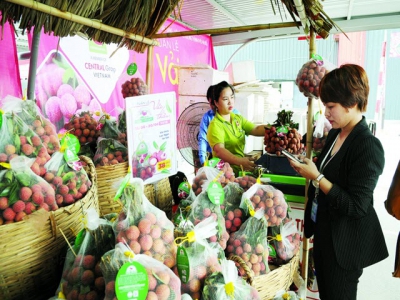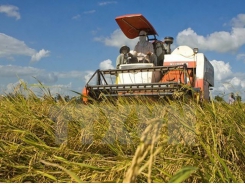Quality is key to agricultural exports to EU

The EU has surpassed the US to become the largest export market for Vietnam’s agricultural products. However, the general picture of export turnover of Vietnamese agricultural products to the EU shows they are not living up to their potential. Tran Ngoc Quan, deputy director of the European-American Market Department under the Ministry of Industry and Trade, spoke to Vietnam Economic News’ Viet Nga on the sidelines of a seminar entitled ‘Trade Promotion of Agricultural Products and Foodstuffs to EU and Japan Markets’.
Tran Ngoc Quan, deputy director of the European-American Market Department under the Ministry of Industry and Trade
What are shortcomings and difficulties for Vietnam’s agricultural exports to the EU?
The EU is not an open agricultural market and has very strong protection in this area. It has also introduced a number of strict conditions for food hygiene and safety, as well as applied various measures for plant safety, animal quarantine and quality control that make it relatively difficult for Vietnam to enter the market.
On some products, the EU applies limits in terms of residual antibiotics and pesticides to the level of nearly zero percent, which closes the door for such goods.
In addition, the EU market’s demand for agricultural products is selective, resulting in a limited export turnover to this market. For example, Vietnamese fruit and vegetable exports to the EU account for less than one percent of its total imports.
What should Vietnam do to increase its export value?
Vietnam is mainly exporting preliminarily processed agricultural products with a low investment advantage and exporting right after harvesting. As a result, profits are mainly collected in the farming and catching processes.
Focusing on the processing stage would yield a higher export value. In the near future, the EU-Vietnam Free Trade Agreement (EVFTA) is expected to open up opportunities for Vietnam’s agricultural products as the import tax will be sharply reduced to 0-5 percent.
Moreover, when investing in processing agricultural products, businesses will enjoy a large tax difference compared to competing countries, while improving competitiveness and gaining higher added value, from which it will be possible to boost export turnover and achieve higher and more sustainable growth.
In particular, to increase both the export quantity and value, the requirements related to chains and promoting export chains must be met. The current agricultural products provided for small-scale retailing shops should seek to be sold directly to distribution systems such as supermarkets for greater stability and sustainability. However, in order to enter the supermarket chains, both EU standards and the distributors’ requirements must be met.
What policies should Vietnam adopt to support agricultural exports?
Vietnam should provide support for producers and farmers through standardized production training programs. In addition, promoting branding is also necessary.
The government is also working hard through the negotiation of free trade agreements in order to expand exports and create opportunities for Vietnamese agricultural products to easily access foreign markets with a more competitive position.
Related news
Tools

Phối trộn thức ăn chăn nuôi

Pha dung dịch thủy canh

Định mức cho tôm ăn

Phối trộn phân bón NPK

Xác định tỷ lệ tôm sống

Chuyển đổi đơn vị phân bón

Xác định công suất sục khí

Chuyển đổi đơn vị tôm

Tính diện tích nhà kính

Tính thể tích ao




 Fruit trends: expect the unexpected
Fruit trends: expect the unexpected  Vietnam-WEF cooperation in agriculture becomes fruitful: official
Vietnam-WEF cooperation in agriculture becomes fruitful: official